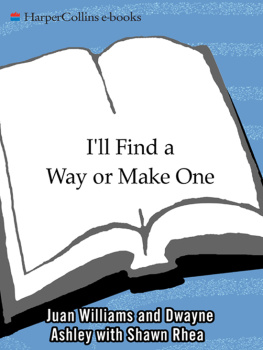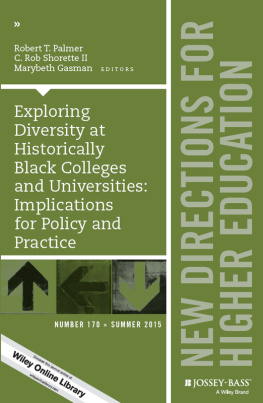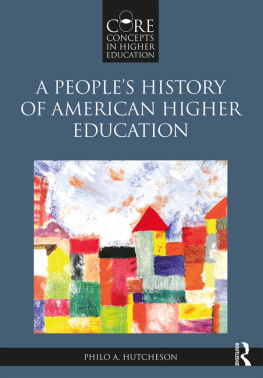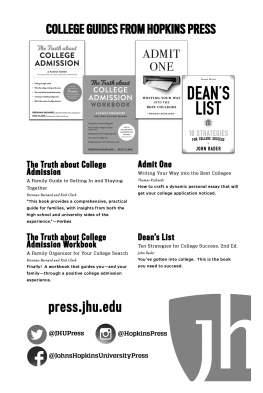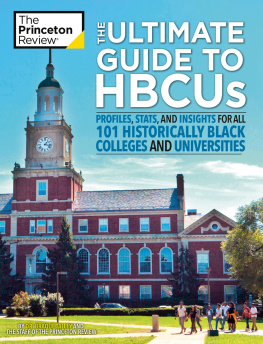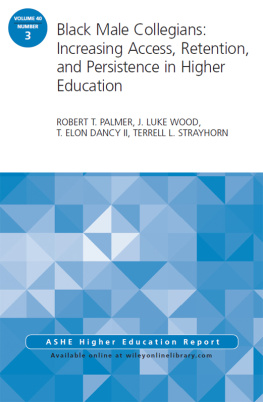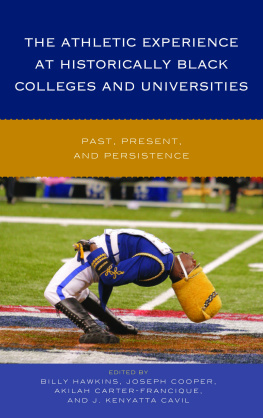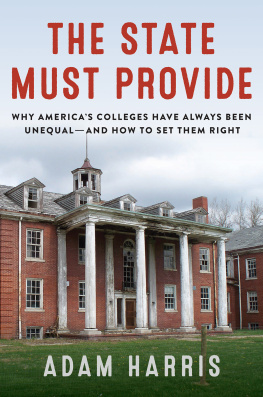Ill Find a Way or Make One
A Tribute to Historically Black Colleges and Universities
Juan Williams and Dwayne Ashley
with Shawn Rhea


Photograph by Abdon Daoud Ackad, Collection of the Supreme Court of the United States Justice Thurgood Marshall, circa late 1967
To a great American and one of the Historically Black Colleges and Universities(HBCU) most famous alumni, Thurgood Marshalla graduate of Lincoln University (Pennsylvania) and Howard University School of Law. A champion, an architect, and a crusader for equal access and open opportunity, Marshall led an extraordinary life dedicated to the transformation of humankind.
Because of his vision and commitment to equality and his willingness to lend his name to the founding of the Thurgood Marshall College Fund, his legacy continues to influence thousands of young men and women who aspire to walk in his footsteps.
Contents
Shackled Minds
The citizenship status of African Americans in the American colonies was loosely defined during the countrys infancy. In colonial America, there were free blacks as well as enslaved blacks. But as the colonies began to rely on a slave labor economy, education of blacks was restricted, and even outlawed.
Books Before Freedom
The trumpet sounds for war. While white Americans fight over the economics of slavery, black Americans declare war on illiteracy.
Yearning and Learning
With the close of the Civil War, 4.4 million free African Americans embark upon an educational journey. Blacks, missionaries, and the federal government work together to create schools.
Voices of a People
In search of self-definition, students and faculties of historically black colleges and universities begin to deconstruct the white patriarchal systems and philosophies that govern their schools.
The Art of Culture
As the Roaring Twenties begin, historically black colleges and universities represent the vanguard of black middle-class culture and the arts.
Season of Threat
HBCUs faced a new threat as the Great Depression, a new world war, and sweeping political changes unsettled the nation. The continued growth and existence of many HBCUs was jeopardized. The major challenge came from the stock market crash of 1929, which ushered in a thirteen-year economic depression. Fewer African Americans can afford college, and HBCUs struggle to keep their doors open in the face of falling enrollments.
Manifest Destiny
When the American Missionary Association began establishing HBCUs after the CivilWar, its goal was to train African American leaders who could help the masses of black people gain equality. By the 1950s, HBCU students and alumni had begun to realize their destiny.
An Education in Protest
During the 1960s HBCU students educated in the art of nonviolent protest take their tactics from the campuses to the streets and win civil rights battles along the way.
Calming the Storm, Healing the Cut
The 1970s found HBCU administrations searching for ways to heal the psychological and financial wounds caused by the radicalism and sweeping changes of the previous decade. Black college presidents also struggled to keep their schools relevant and desirable places of learning for blacks while simultaneously diversifying their appeal to other racial groups during an age of integration.
New Day, New Challenges, New Hope
One hundred and seventy-two years after their inception, historically black colleges and universities stand at the crossroad, ready to take on the future.
THURGOOD MARSHALL COLLEGE FUND
The Thurgood Marshall College Fund (TMCF) was founded in 1987 to offer scholarship assistance to students attending public black colleges and universities. Since its founding, TMCF has awarded more than $50 million in scholarships and programmatic support to close to 4,500 students attending its forty-five member institutions.
The quest to start a merit-based scholarship fund to support public HBCU students was begun by Dr. N. Joyce Payne, director of the Office for the Advancement of Public Black Colleges of State University and Land-Grant Colleges (OAPBC) of the National Association of State Universities and Land-Grant Colleges, in cooperation with the American Association of State Colleges and Universities. She discovered that her alma mater, D.C. Teachers College, was not a member institution of the United Negro College Fund, which aids private HBCUs. Payne enlisted the support of Thurgood Marshall, Supreme Court associate justice, who lent his name to the effort. With a vision and Justice Marshalls blessing, Dr. Payne hit the pavement with Noel Hankin, then of the Miller Brewing Company, Al Smith, of North Carolina A & T State University, and James Parks, formerly of Miller Brewing Company, to form partnerships with corporate executives and educators. Many in the corporate world had to be made aware of the contributions that public black colleges and universities had been making for well over a century. Seventy-seven percent of the students enrolled in a historically black college or university attend one of Thurgood Marshalls member institutions. Presently TMCF has partnerships with corporations, foundations, and organizations that provide financial support, internships, and job opportunities for deserving graduates.
TMCF has expanded its work to include students before they enter college and after they graduate. Innovative programs with groups like the New York City Summer Employment Program expose students to different career choices through interaction with TMCF corporate partners and Thurgood Marshall scholarship alumni. TMCF has also joined with the Bill and Melinda Gates Foundation to improve five low-performing high schools and create three new high schools in low-income areas. The National Test Prep Program prepares students for the GRE, GMAT, MCAT, and LSAT tests.
Ninety-eight percent of TMCF scholarship recipients graduate, and 50 percent gain entry into the most prestigious graduate and professional schools. A special scholarship is available to students attending the four historically black law schools. Many of the students who receive financial assistance from the fund would not be able to attend school without these awards.
The Thurgood Marshall College Fund is the only national, merit-based scholarship fund for students attending black public colleges and universities. As a result of the funds support of African American education, future black leaders are being trained to enter the workforce and make a difference in their communities, the nation, and the world.

Black classroom, Birmingham, Alabama, 1956, by Gordon Parks
Gordon Parks
Civil Rights Activism
Theater at HBCUs
African Free School
African Higher Education
African Leaders and HBCUs
African Methodists
American Missionary Association
HBCU Sports and Athletes
Challenges to Affirmative Action in Higher Education
Mary McLeod Bethune
Black Clergy Leaders
HBCU Benefactors
Corporate Leaders and Financiers
Filmmakers
Fisk Jubilee Singers
The Forten Family
Fraternities:
Alpha Kappa Alpha
Alpha Phi Alpha
Delta Sigma Theta
Iota Phi Theta

